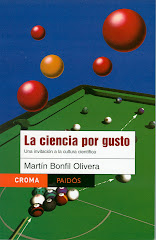Published in Milenio Diario, november 9th, 2009

The scandal was very well timed: one month before the United Nations climate change conference took place in
The objective? To "prove" that climate change experts manipulate data, hide information, ridicule and insult their adversaries –climate change denialists that oppose the fact that global warming is real, or consider it as natural phenomenon, not caused by human activity– and prevent them from publishing their arguments.
And it's true: some documents seem to show evidence of these kind of manipulations. The issue is being investigated to determine if there has been bad scientific practice. If it's confirmed, it will be punished. Also, published data is being verified, to ensure it's reliable.
But it's very probable that we're dealing with a discredit campaign to weaken the International Panel of Climate Change (IPCC), the United Nations, the scientific community and the governments which, right now, are discussing in Copenhagen the urgency of taking measures to diminish the greenhouse effect emissions to attenuate, as much as possible, the damage global warming is already causing.
Sadly, for people who are not specialists, the exhibition of the dirty laundry of scientists in action can be scandalous. In contrast with the pure and untainted –but false- image of science as an infallible method to discover absolute truths, to see researchers as human beings, who commit mistakes and have envies and political interests is a good way to challenge the results of their investigations. But they forget that the reliability of such results it is not given by the personality of individual scientific people, but by a very hard to manipulate collective, international and public quality control process.
It is easy to discredit something by inventing conspiracy theories and exhibiting isolated and out-of-context data. But, independently of the very high economical and political costs of modifying our industry, to play the fool before climate change is an inadmissible risk.
(translated by Adrián Robles Benavides)
To receive Science for pleasure weekly
in your email, subscribe here!




